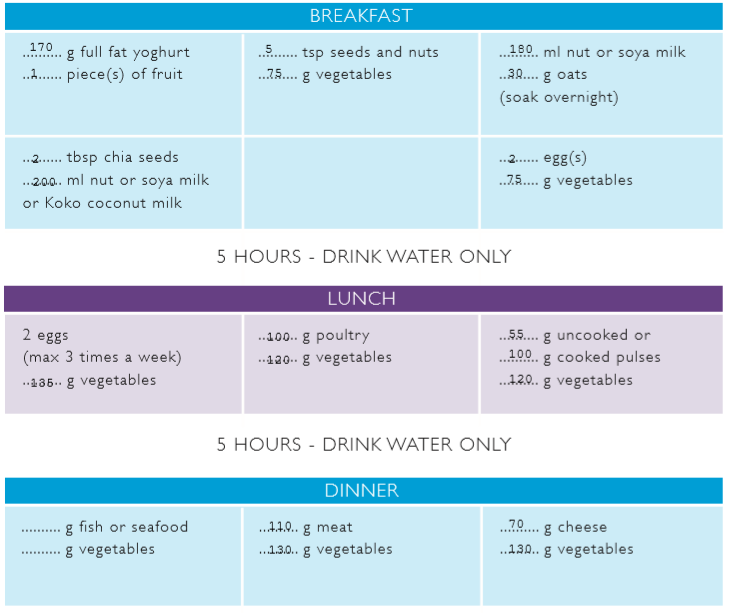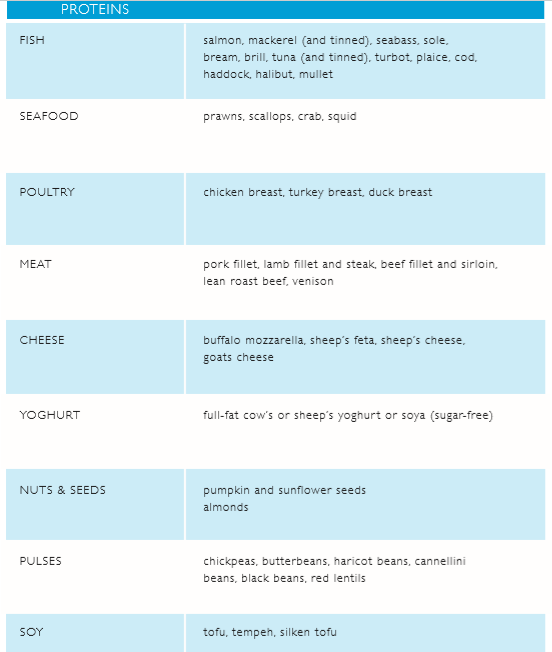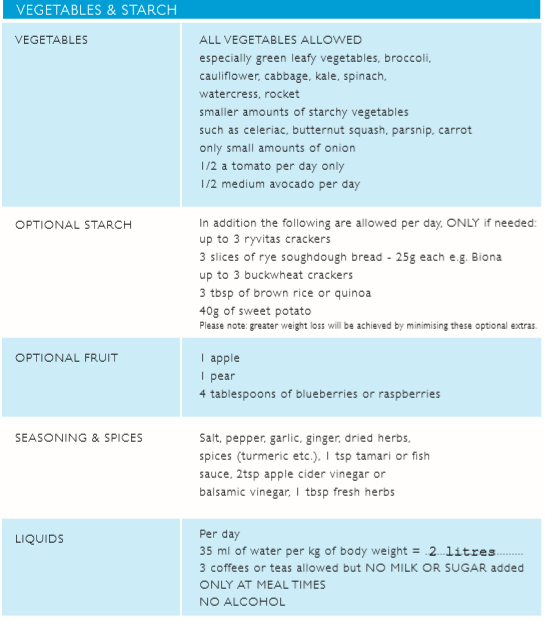Nutritionist Pippa Campbell says you can lose weight on shift work – her weight loss plan, saw a 23 year old nurse lose 5.8kg in one week. Here are her rules
A new Harvard research study of 150,000 nurses over 15 years, found that a person’s work schedule can hinder the body’s resilience and control over their blood sugar levels.
Women who work with an intermittent schedule of day and night shifts – for example, nurses – are more likely to be overweight and are at higher risk of type 2 diabetes, a disease that is often caused by unhealthy lifestyle factors such as, fast food, smoking and a lack of exercise.
A study from Occupational & Environmental Medicine recently showed that pregnant women who work two or more night shifts a week have a higher risk of miscarrying. This risk goes up after Week 8 of pregnancy, where women working two or more night shifts were 32 percent more likely to miscarry.
The risk increased with the number of night shifts work, and by numbers of consecutive shifts.
The findings from the Harvard study, published in the British Medical Journal, recommend that greater attention needs to be paid on how irregular shift work can have a serious and unhealthy impact on a woman’s health.
If we are eating when we should be sleeping, this will affect our bodies in a negative way
Biscuits, chocolate, crisps and a lot of caffeine – that was the daily diet of Alexandra Farris*, 23, who was faced with the challenge of managing her weight whilst working long hours as a peadiatric intensive care nurse in a large London hospital.
A staggering one in four (25 per cent) NHS nurses are obese, according to a study published in the BMJ last December, and even more shockingly, 33 per cent of unregistered care workers. These statistics, which came from Edinburgh Napier University and London South Bank University, are in line with the government’s UK population figures on a whole, with 26 per cent of adults classified as obese in 2016.
Experts said the figures were ‘deeply worrying’ and long, stressful shifts often made it hard for staff to make healthy choices. ‘Things that are quick and easy to eat are often not the healthiest’, says Alexandra.
‘There are a few other factors – families bring in chocolates as a thank you, which are easy to nibble on to keep you going when you’re flagging. Night shifts throw your body out of sync because you are awake and eating when most people would be asleep, and on top of that there is no pattern to our rota so it’s hard to plan ahead.’
‘I can totally see why the statistics are so high’, says Pippa Campbell, a nutritionist and weight loss specialist. ‘A chaotic eating routine can cause weight to pile on.
‘Shift work will affect eating schedules. If we are eating when we should be sleeping, this will affect our bodies in a negative way. It alters our natural circadian rhythms which can cause a multitude of health problems including an imbalance of our microbiome [gut bacteria]. This in itself can lead to minor problems such as constipation through to inflammation and chronic disease.’
The study researchers warned that high obesity prevalence among nurses is concerning as it could be contributing to high staff sickness levels and heaping more pressure on the health service, especially as almost half of nurses are over the age of 45.
What does a nurse normally eat?
On a normal 12 hour shift, day or night, Alexandra is entitled to a 15 minute break and 40 minute lunch. ‘However there have been shifts where I go without breaks or take significantly shorter ones just because of the work load’, she says.
Looking after critically ill children, Alexandra says its normally one nurse to one patient. ‘As they’re so sick you have to stay by their bedside at all times in case they deteriorate’.
Often when its busy, nurses will buy packets of biscuits on their break for the whole team.
‘I’ve been so hungry before I can feel my stomach eating itself. Some people have fainted before or tested their blood sugar levels and they’ve been quite dangerously low’, says Alexandra.
By the time Alexandra is able to get on break, food is the only thing on her mind. ‘The way I eat is to fill up. Not for nutrition’, she admits.
‘I’ve kept a food diary before and it’s quite embarrassing. I start the day with chocolate or biscuits, because I struggle to eat a meal so early but need something to take the edge off [Alexandra leaves the house at 5am for a day shift].
‘If I get a morning break, I try and eat as much as I can because I don’t know when I’ll next eat. I’ll have lots of fruit, a pastry or toastie from the café downstairs, followed by crisps or chocolate or yoghurt.
‘Often when its busy, nurses will buy packets of biscuits on their break for the whole team. They sit at the front desk so you can pick at them as you pass to keep you going. My work makes me want to choose treats as a reward for working so hard. I like looking forward to eating a big bowl of pasta that will fill me up’, Alexandra says.
How to lose weight when you’re a nurse
Alexandra was eager to change her eating behaviour as the pounds piled on and her energy was always low. According to Pippa, you can lose weight if you’re doing shift work. ‘You can’t change your job, so you need to work around it’, she says.
Many of Pippa’s clients are nurses who are overweight. ‘People come to me and have tried all the fads. With fads, you aren’t eating real food. Instead it’s things like snack bars and shakes which are full of sugar. These diets put you into starvation mode, and as soon as they eat normally again, they put on more weight.
‘Although my weight loss plan starts with seven days restricted eating, it’s not about quick fixes. It’s about learning to eat healthily.
‘The main things to remember are that organising and prepping food on off-work days is important, you must still allow a 12 hour fasting window to help lose weight, and in terms of lifestyle choices, make time to de-stress and relax.’
9 ways to lose weight for shift workers
Alexandra lost 5.8kg (12.7lbs) in a week following Pippa’s 7 Day Weight Loss Plan – here are the rules she followed
1. Start each meal with two bites of protein
‘When we eat carbs, even vegetables, it can cause spikes in insulin which can cause fat storage’, says Pippa.
‘By eating protein, it prepares the body by reducing an enzyme called proteases and doesn’t have an effect on raising insulin. Even if you go for a glass of wine, have a few almonds first.’
2. Leave five hours between meals
‘Only drink water in between meals, and only tea during meals (no coffee)’, says Pippa. ‘If you’re eating the right things, you shouldn’t have to snack. People who eat the wrong things for breakfast, such as cereals, granolas or toast, will see their blood sugar levels rise suddenly and then a couple of hours later, drop again, so they need more sugar. If you do need a snack, almond butter on some crackers would be good’.
3. Drink the correct amount of water
35mls per kg body weight, which is two litres for Alexandra.
4. Do not mix proteins
‘The reason for this is because back in hunting times we wouldn’t have had a trout and a boar at the same time. Our bodies aren’t programmed for this,’ says Pippa.
5. Do not use oil
‘In the absence of oil in a lower carb diet, your body will need to get fuel from its own body fat. For one week, remove healthy fats, cooking oils, butter, ghee, coconut and olive oil. After that, they are good for you and a source of energy. Your body does need healthy fats.
‘Herbs and spices, like cumin, harissa, Cajun and fajita, will be your best friend because they can jazz up meals. Add to some chicken in a food processor and make some patties. There is enough oil in the food to fry them off in a non-stick pan.’
6. Leave 12 hours between dinner and your first meal
‘You need 12 hours not eating, overnight’, says Pippa. ‘That’s perfect fasting time when we burn fat. Some people do intermittent fasting (IF) either every day or a couple of times a week. Instead of having breakfast at 7 or 8 am, they’d have protein powder (without sweeteners) in water, and then wait till lunch, which can extend the fast for up to 18 hours. Only carbs will take you out of the fasted state. It’s like a spring clean in the body.
And what about those night shifts, when meals can go out of whack? ‘Sometimes when there is a changeover, you might need to shift meals around, but you still want the fasting window. If you’re struggling with hunger, it’s okay to include a small snack such as a small handful of almonds or seeds, nut butter on a small cracker, or a piece of cheese.’
7. No cow’s dairy
For the first week, you can only have sheep dairy or sugar free soya yoghurt. ‘There are so many things in cow’s dairy that are reactive for some’, says Pippa. ‘I’m not saying dairy is a no-no at all though I don’t agree with low fat. Later on, you can slowly add full-fat dairy back in and monitor reactions.’
8. No gym
Yes, you heard right. ‘Focus on the food’, says Pippa. ‘People go out and do a whole load of cardio which increases appetite, but I only recommend light exercise if you have the energy, such as yoga or walking, especially with such a demanding job.
‘Some people who live busy lives are getting up at 5am and beasting it out, having a full day of meetings and exhausting themselves. They think they will lose weight – sometimes if you over exercise, your body gets in a state of stress and you can’t lose weight.’
9. Make time to relax
‘In terms of lifestyle choices, make time to de-stress and relax’, says Pippa. ‘The job is demanding, stressful and emotional. Learning to leave work worries at work is important. Find what works for you – yoga or meditation. It may be good to incorporate some calming breathing whilst listening to music, perhaps on the train to work.
‘Also, try and get outside in the sun when you can so that your body knows when it is daytime. If you can, wear dark sunglasses on the way home after a night shift. Bright lights will tell your body it is awake time. Don’t look at your phone – the blue light can inhibit melatonin and delay sleep.’
Weight loss meal plan for shift workers


Any of the breakfast, lunch and dinner choices can be added to with the optional starch and optional fruit up to the limit (see above). These include foods such as sweet potato, brown rice or sourdough bread. You are allowed an optional fruit per meal.
For example:
Breakfast: ‘Poach the two eggs and have with a slice of rye bread, smashed avocado and green leafy vegetables such as rocket or watercress which are great for supporting detoxification’, says Pippa. ‘Or, have a serving of fruit of optional four tablespoons of berries with the overnight oats.’
Lunch: ‘Smashed avocado and spinach works really well with balsamic vinegar on a Ryvita’, says Pippa. ‘Pulses are a great source of fibre and very easy to store in the cupboard. Top tip: I usually grill or poach a load of chicken breasts on a Sunday and keep them in tuppaware in the fridge all week.’
Dinner: ‘I’ve made dinner slightly larger than lunch, but this is interchangeable’, says Pippa. ‘Only have lean meats and try and mix up the vegetables as much as possible to get all the benefits. This is a low-GI plan, because high GI foods such as refined bread or white potatoes can raise blood sugars too much.’
‘You are allowed one optional portion of fruit per meal, and I’ve limited that to curb sugar cravings’, says Pippa.
Results
Alexandra lost a staggering 5.8kg in one week whilst working at the hospital. But how did she feel? ‘I felt so much less bloated’, she says. ‘But the biggest challenge was hunger, and I did feel quite grumpy’, she says. ‘Especially on night shifts. It was very hard to not eat things parents of children in the hospital bought me.
‘The easiest part was not having oil. I don’t normally cook with oil anyway. If I’m making meat, I cover it with spices, wrap it in foil and cook it in the oven. However it was difficult to not have oil in salad dressings – balsamic all the way!
‘Afterwards I went out for dinner three times in a week and had wine to celebrate. Once that was out of my system, I felt more balanced and could think about what I gained from the plan. I learnt that I really like soya yoghurt as it’s easy to consume so early in the morning on my way to work with berries.
‘I’ve gotten into the habit of taking lunch in with me, such as chicken with a mix of vegetables. I’m trying to focus on having more meals so to avoid reaching for crisps and sweets as snacks. However, I couldn’t completely cut everything out, as its simply too hard and sad, especially during night shifts. This has given me the kick in the right direction.’
4 rules of healthy living for shift workers
Once you have reached a desired weight, it’s important to continue the four main principles whilst the body makes further adjustments, says Pippa. As you reach closer to your goal you may increase portion sizes but monitor your body’s response. To continue:
-
Eat oil and fat
You now must take 2-3 tablespoons of oil a day as part of your meal plan to help with energy, good skin and feel fuller for longer. Coconut oil is best for cooking and Olive oil for salad dressings.
2. Enjoy a Treat Meal once a week.
This is an opportunity to eat foods not on your food list and have a glass of wine if you wish. When you have a treat meal the following rules must be observed:
– Omit fruit and starch with the two other meals on this day.
– Begin each meal with protein.
– Drink extra water before and after your meal (30 mins before and after).
– Eat protein before drinking alcohol, for example a few nuts, seeds or small piece of cheese.
– Avoid heavy sauces.
3. Exercise every day
Time may limit you, but you can take the stairs instead of the lift, walking or cycling instead of taking the car or bus, taking a lunchtime walk. Take part in proper physical activity at least two to three times a week such as 15 minutes of high intensity training or strength training if you have the energy.
4. Go for low GL carbohydrates
Be conscious about eating only moderate amounts of carbohydrates, primarily with a low Glycaemic Load (GL) such as wholegrain oats, pasta, bread, pulses and lentils.
‘Once the magic rules have become second nature, you will find it easy to maintain your new weight and well-being’, says Pippa. ‘You can enjoy every type of celebration, party or any other invitation, because you make the right choices.
*name has been changed to protect the nurse.
Pippa Campbell is based in Jersey with a clinic in London. She has 12 years experience and in this time has seen over 2000 clients, most of whom have suffered with health issues due to diet and lifestyle.
These health issues are often linked to being overweight. Pippa specialises in healthy weight loss programmes that aim to change the metabolism and crack unhealthy eating habits for good, delving into the root causes and making lifestyle changes.
Website: pippacampbellhealth.com
Instagram: @pippacampbell_health
More Healthista Content:
5 surprising reasons you aren’t losing weight
‘I was addicted to my alcoholic partner’
Antibiotic resistance PLUS how to fix a cold fast without drugs
Like this article? Sign up to our newsletter to get more articles like this delivered straight to your inbox.




























































